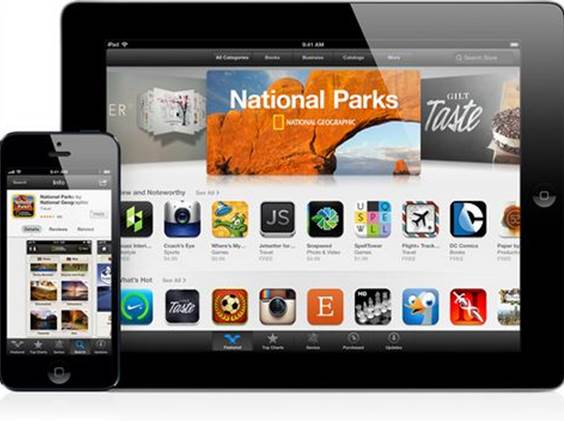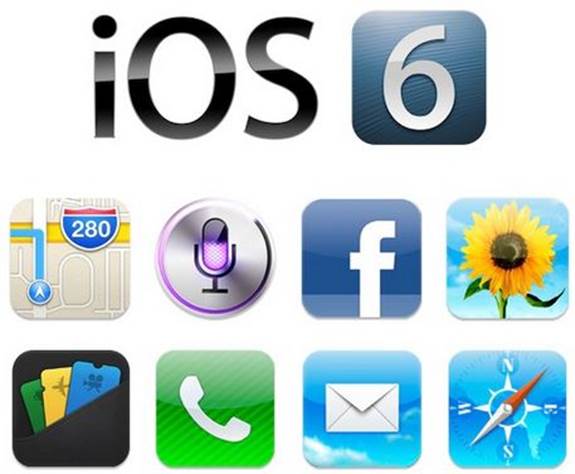iOS
Apple’s iOS operating system and App Store
combination quickly tablet PCs following its rapid rise to prominence in the
smartphone industry. Sticking to its usual design ethos, Apple created an
operating system that was simple and elegant and which blurred the lines
between hardware and software so that the two are nearly inseparable from the
user's perspective.
Apple's customization options may be
superficial when compared to Android, but the basic preferences are all catered
for, whether that's setting the default screen brightness or volume or altering
behavior for things like location services and Wi-Fi authentication. It might
not have the depth of options that Android does, but the choices users do have
are well presented and easy to decipher, which makes it a good choice for less
capable users.

Apple’s
iOS operating system and App Store combination quickly tablet PCs following its
rapid rise to prominence in the smartphone industry.
In contrast to Android, Apple's iOS devices
tend to have only one hardware button, which performs a general function: the
'home' button, which is used to return users to the home screen, access
controls when the phone is locked and switch apps when multitasking. Simplicity
is built into iOS from the ground up, delighting some and irritating others -
it's difficult to circumvent or shortcut Apple's organization, so advanced
users might find that they feel limited by iOS's behavior.
As noted earlier, the App Store offers over
950,000 apps, some 375,000 of which are iPad-specific. By filling its store
with low- price, low-risk software, Apple created the template that Google Play
and its competitors follow. Unlike Android, however, apps can only be installed
from the App Store - the only way to install apps from other sources is to
jailbreak your device, which may void your warranty.

Google
Play store
Unlike the Google Play store, the App Store
has a stringent set of rules that must be adhered to concerning the content and
functionality of Apps, which generally ensures a higher quality of software is
made available. Any objectionable or explicit content is kept out of the App
Store at Apple's discretion, so your feelings on censorship may inform how good
you feel towards it. There have been several major stories concerning the
inconsistent application of this policy, however. For example, Apple once
earned the public's ire for allowing a controversial 'Gay Cure' app to go on
sale despite its content being quite obviously objectionable to many and the
company itself gained considerable publicity when it removed the Wikileaks app
from its online library, while the same app remained available to Android
users.
Early in its life, one of the most common
complaints about the iOS platform was its lack of support for Flash, which
Apple considered to be a virtual machine and therefore banned from iOS devices.
In recent years, this has been less contentious, but it's still worth noting
that IOS doesn't support Flash, while other mobile operating systems do.
Another sticking point is Apple's insistence on using proprietary software.
Although it's now possible to run an iOS device without ever connecting it to a
PC, those who wish to do so will need to install iTunes to sync its contents
and create backups.

Early
in its life, one of the most common complaints about the iOS platform was its
lack of support for Flash, which Apple considered to be a virtual machine and
therefore banned from iOS devices.
The iPad's music software is a direct
successor of the iPod, meaning that multimedia viewing and organization Is
arguably the best in the industry, while apps like iMovie and GarageBand bring
Apple's top-rated media studio tools to the tablet world. All significant
updates to iOS are made available free across all actively supported devices
(deprecated systems, such as the iPad 1, are prevented from updating) as a
self-installing download, which ensures more than 70% of all iOS users are
running the latest release.
Ultimately, though, it seems that iOS will
be a victim of its own exclusivity. With Android's software strengthening from
release to release and Increasing numbers of Android units on sale every day,
it's only a matter of time before iOS is - if not deposed - then at least
forced into something of a stalemate. Android already rules the smartphone
market; it may be that the long game sees those users eventually migrating to
Android tablets too, rather than iOS ones. Only time will tell.